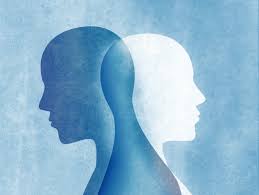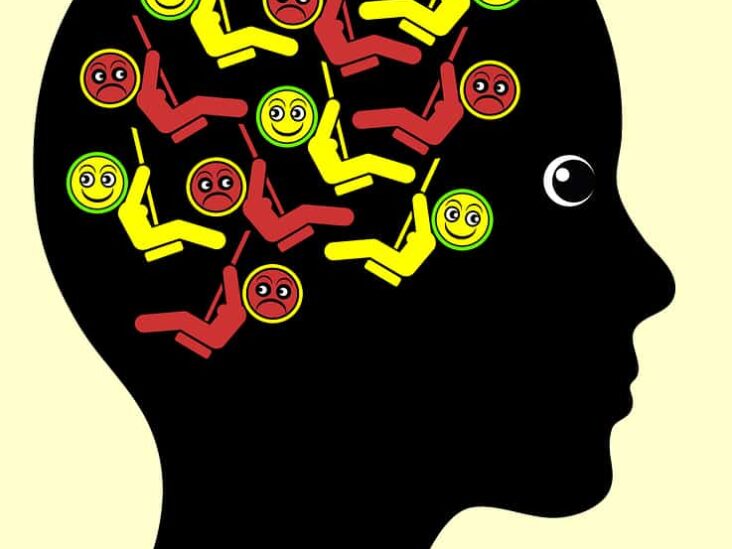Whether you’re experiencing a mild case of hypomania or a full-blown manic episode, it’s important to know what’s going on inside your head. In this article, we’ll take a look at the different types of hypomania and how they differ from one another. We’ll also discuss some of the hypomanic episode symptoms that signal you might be experiencing an episode, and offer tips for coping with them. So don’t worry – hypomania is just a part of being human!
Contents
What is a Hypomanic Episode?

Hypomanic episodes are a type of mental health disorder that affects a person’s mood, energy, and behavior. They can be short-term episodes or longer-term conditions.
People with hypomanic episodes may have elevated moods and feelings of euphoria, overconfidence, and impulsiveness. They may also experience racing thoughts, difficulty concentrating, increased activity levels, and irritability.
A hypomanic episode is not always easy to recognize, but it’s important to get help if you’re feeling like you have one. There are ways to manage hypomania so that it doesn’t become a long-term problem. Sometimes there may be many different causes for a hypomanic episode, so it’s important to get help from a doctor or mental health professional to figure out the best way to manage it.
What Are The Signs and Symptoms of a Hypomanic Episode?

Hypomania is a mental health condition that can be characterized by elevated mood, energy, and activity levels, as well as decreased need for sleep. Individuals with hypomania may also have a decreased need for food and a tendency to engage in risky behavior.
There are many signs and symptoms of a hypomanic episode, but some of the most common include:
Decreased Need For Sleep
One of the most common signs of a hypomanic episode is a decrease in the need for sleep. Individuals with hypomania may feel energized and alert even after having only a few hours of sleep. Also, there may be many thoughts and activities that are outside the norm for them, such as spending excessive amounts of time on the internet, working excessively long hours, or engaging in risky behavior.
Eccentric Behaviours
Individuals with hypomania may engage in a wide range of novel and eccentric behaviors. These may include spending large amounts of money, becoming obsessed with new hobbies or activities, or becoming easily agitated or restless. These also make it difficult for them to stick to normal daily routines.
High Energy Levels
Individuals with hypomania often have high energy levels that last for days or even weeks. They may feel constantly active and optimistic and may have difficulty winding down after a long day of work or activity. These energy levels are also often difficult to control, leading to problems with concentration and difficulty staying on task.
Increased Social Interaction
People with hypomania often become very social and engage in excessive interaction with others. This may include talking excessively, engaging in impulsive or reckless behavior, or spending a lot of time alone. This social interaction may also make it a challenge for them to stay on task or focus on tasks that are important to them.
Decreased Concern For Own Well-being
Individuals with hypomania may not care about their well-being as much as usual. They may feel confident and self-assured even when they are feeling down or exhausted and may not take the time to rest or eat properly.
Accelerated Ideas and Thinking
Individuals with hypomania may have a greatly increased number of ideas and thoughts, which can make it difficult to focus on anything else. They may also be more creative than usual, and find it difficult to resist new opportunities or temptations.
Trouble Viewing Negative Thoughts
People with hypomania often have difficulty viewing negative thoughts or experiences as negative. Instead, they may see them as positive opportunities for growth or learning. Also, they may be more likely to act impulsively or emotionally based thoughts than usual. It can also be difficult for them to stick to plans or schedules, due to their high energy levels.
Reasons For a Hypomanic Episode

There are many reasons why someone may experience a hypomanic episode. Here are some of the most common:
Mood-Boosting Medications
One of the most common reasons for a hypomanic episode is taking mood-boosting medications. These medications can cause a person to feel happy and energized, which can lead to an increased risk of developing a hypomanic episode. These also tend to wear off over time, so it is important to check with your doctor if you are taking one of these medications and experiencing a change in your mood.
Psychological Factors
Some people may feel hypomanic when they are feeling particularly good about themselves. This can be due to external factors like good work performance or other accomplishments, or it can be due to factors within the person’s own life such as happiness in a new relationship.
Stress
It is not uncommon for people to experience a hypomanic episode during times of stress. When the stress is chronic or overwhelming, it can lead to an increase in the activity of certain brain chemicals, which can then result in a hypomanic episode. Sometimes, a person may not even know they are experiencing stress until they experience an episode.
Medical Conditions
Some medical conditions may lead to periodic episodes of hypomania. For example, bipolar disorder may lead to hypomanic episodes that last for several days or weeks at a time. Other conditions that can cause hypomania include ADHD, anxiety disorders, and substance abuse disorders. Sometimes, the condition that is causing hypomania may be treatable with medication, but in other cases, there may be no cure.
Treatments for Hypomanic Episode

There are many treatment options available for people who experience a hypomanic episode. Some of these treatments include:
Medications
Many people find that medications are a helpful way to manage their hypomania. Mood-boosting medications can help to stabilize mood and prevent episodes from occurring. Additionally, some medications are specifically designed to treat hypomania. For example, antidepressants are often used to treat hypomania due to their ability to increase serotonin levels in the brain.
Psychotherapy
Psychotherapy can be an effective treatment for people who experience recurring episodes of hypomania. Also, Psychotherapy can help individuals understand and address the factors that lead to episodes of hypomania. It can also provide support during times of crisis and help people learn how to manage their symptoms better.
Group therapy is another type of psychotherapy that is often used to treat people with bipolar disorder or other conditions that cause episodes of hypomania. Also, Group therapy provides an environment where individuals can share their experiences and work too,
How Can You Manage a Hypomanic Episode?

Hypomania is a mental disorder characterized by increased energy, euphoria, ambition, and impulsivity. People with hypomania often have a positive outlook on life and have trouble regulating their emotions.
There are many things you can do to manage a hypomanic episode effectively. Here are some tips:
Establish boundaries with friends and family
When you’re in a hypomanic mood, it can be difficult to differentiate between what’s important and what’s not. Make sure you set boundaries with your friends and family so that you can maintain healthy relationships while you’re in the midst of an episode.
Set realistic expectations for yourself
It’s natural to feel ambitious during a hypomanic episode, but don’t let that drive your career or personal goals. Set reasonable goals and be prepared to take some time off if necessary to meet them. Sometimes there are temporary setbacks that are unavoidable during a hypomanic episode, but don’t let them convince you to give up on your dreams.
Manage stress and anxiety
Stress and anxiety can contribute to hypomania, so make sure you take measures to manage these conditions. Meditate, exercise, and eat healthy foods to help reduce the amount of stress in your life. If anxiety is a major problem for you, talk to your health care provider about options for treatment.
Avoid stimulants and alcohol
Stimulants like caffeine and nicotine can increase energy and mood, which can be great during a hypomanic episode. However, they also have negative effects on judgment and decision-making abilities. If you’re using stimulants, make sure you’re aware of the risks associated with using them and stay safe while using them. Alcohol is also a stimulant, but it has more negative consequences than most stimulants. Drinking alcohol in moderation can be beneficial for social occasions or celebrations, but excessive drinking can lead to alcohol abuse and other problems.
Take regular breaks
When you’re feeling overwhelmed by your thoughts or feelings, take a break for 30 minutes or so. This will allow your brain to reset and refresh itself. When you return to the situation, you’ll be able to handle it more effectively.
Talk about your feelings with someone else
When you’re experiencing a hypomanic episode, it can be difficult to communicate your thoughts and feelings. talking about your experiences with someone else can help you feel less alone and more understood. Talking about your thoughts and feelings can also provide relief from the intense emotions that are associated with a hypomanic episode.
Conclusion
If you or someone you know experiences symptoms of hypomania, it’s important to get help. Hypomania is a condition that can be very manageable if caught early on, and the sooner you seek treatment, the better chance you have for a positive outcome. In this article, we’ll explore what hypomania is, some common symptoms, and how to get help if you or someone you know experiences them. Hopefully, this will give you some insight into what might be going on and where to turn for support.
Hope this article was of help to you! If you are suffering from mental health disorders, you may seek help from Therapy Mantra. We have a team of highly trained and experienced therapists who can provide you with the tools and skills necessary for overcoming mental health disorders. Contact us today to schedule an online therapy or download our free Android or iOS app for more information.


